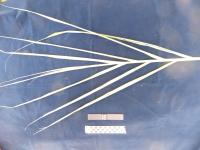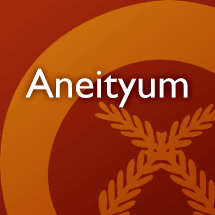Entry # 3217 has returned 1 entry
niyeg

n. grass. Found in disturbed area behind the village. (collection: Ashley A McGuigan #12)
Example: 1. To cure the sea snake (nispev) curse that causes missed periods. First the husband must combine 4 young leaves of incispev and 4 young leaves of nafanu and mash and squeeze the juice into a small bamboo (1-1.5 inch diameter) The nafanu is important because it is a plant that connects to the sea. Use wildcane leaves cover the bamboo closed. Go to the sick person and unwrap the snake from her. Start from the top and let the woman drink a small part of the potion then wash her with the mixture, making sure to wash head, elbows, knees, feet, and belly. Then take a leaf of naha and break it over the woman’s belly button to break the snake off. Smash the bamboo vessel to pieces. Leave the woman there until the wash dries on her. This takes one whole day and the ceremony in the evening so she can sleep and she must not eat. This ritual is performed by men. 2. Main plant to thatch roof of local houses. 3. Collect the dry stems, tie together, use as a torch at night for walking or walking along the reef when fishing. 4. Take 1 cane and tie the leaves together and tie on a tree to indicate tabu – e.g. a citrus tree that will be ripe soon to tell people not to pick it. 5. To catch crabs just before sunset, burn the torch and shake the ashes on the rocks; come back an hour or so later and the crabs are attracted by the ashes and you can collect them. 6. Can also use to weave walls of house. 7. Women clean the leaves of the stem and use the hard part of the stem to strip pandanus leaf before weaving a basket. 8. Cut wild cane in half and sharpen the end, use this to cut the dried pandanus leaves into small strips. 9. Tie leaves into a knot and stick the knot on the kava stem; t is means that this kava goes “express” so the carrier goes to one border of a village and passes it to another person who knows it cannot stop in this village but goes to the next border and is passed on 10. This plant is a “message plant” to say “don’t stop,” referring to something being delivered.
bookmark


